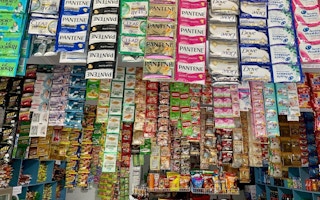In Southeast Asia we are faced with the plastic crisis every day. Discarded single-use plastic has become ubiquitous and commonplace. One could say ASEAN citizens have grown accustomed, if not numb, to so much plastic pollution.
To continue reading, subscribe to Eco‑Business.
There's something for everyone. We offer a range of subscription plans.
- Access our stories and receive our Insights Weekly newsletter with the free EB Member plan.
- Unlock unlimited access to our content and archive with EB Circle.
- Publish your content with EB Premium.
In Indonesia, plastic has forever tainted our vast archipelago - from the streets of Jakarta to the beaches in Bali, ruining our environment and affecting communities and our health.
The production of plastic packaging, particularly sachets which are commonly purchased in Southeast Asia, further exacerbates the plastic crisis by adding to the environmental burden in the region. It’s time for nations like Indonesia to step up and lead us toward a strong and ambitious Global Plastics Treaty that is now being discussed among UN member states.
The third round of UN negotiations take place this month in Nairobi, Kenya. We must use this opportunity to make our voices heard by government leaders attending the meetings. As an Indonesian personally affected by plastic pollution, I want our policymakers to take the lead and represent communities that are faced with the devastating effects of single-use plastic.
In Indonesia and in other Southeast Asian nations, multilayer sachets are at the core of this crisis. Sachets are flexible plastic packaging in both monolayer and multilayer versions, which are commonly used to sell products such as household detergent and shampoo in single-sized servings. They are used for a few seconds, but have a lifetime impact on our environment.
Single-use plastic packaging and sachets can never be seen as circular. In Indonesian brand audits conducted by the Break Free From Plastic movement, Unilever, Nestlé, Coca-Cola, Indofood, and Procter & Gamble ranked among the top polluters for five years in a row. If Unilever is serious about being part of the solution to the plastics crisis that it has helped create, then it must commit to banning sachets by 2025. And with only 9 per cent of the plastic produced globally ever recycled, we know that’s not the solution.
Due to the absence of big brands’ responsibility and initiatives over post-consumption packaging, ‘plastic take-back schemes’ rely mostly on external waste banks and collective initiatives by private entities and start-ups. While these big brands are able to distribute their products to various locations, they fail to take back their packaging and waste sorters can’t recycle them as there is no economic viability. This means that the majority of plastic waste is left untouched in the environment for decades unless governments put legally binding policies in place and push big brands to have roadmaps to phase out sachets.
Over time, the plastic crisis has worsened as several landfill sites in Indonesia have experienced overload and fires. Communities living on the frontline are breathing toxic fumes that are harming people’s health. Sarimukti landfill, Bandung, experienced a fire in August. Our coalition, the Indonesian Zero Waste Alliance, reported that more than 50 residents of Cipatat, West Bandung had complained of sore throats, shortness of breath and eye irritation. The plastic pollution crisis is accelerating social injustice within communities and fueling the climate crisis, and the only way to stop it is for governments to agree on a strong global plastics treaty that is firmly rooted in a human rights-based approach.
Greenpeace demands that we end the plastic pollution crisis by reducing production by at least 75 per cent by 2040 to keep global warming below 1.5 degrees Celsius. The reality is that plastic pollution contributes to climate change from the moment it is created through the process of oil extraction, transportation, and production refining. According to a report by CIEL, plastic is responsible for emissions of approximately 108 million metric tonnes of carbon dioxide equivalent (CO2e) worldwide.
Indonesians have been taking to the streets to push for producer accountability for the past five years. We are demanding that governments take action by ending single-use plastic and banning sachets by 2030. We need more ambitious regulations and bold policies that support reduction to be agreed upon during the Global Plastics Treaty’s negotiations. If your sink was overflowing, you’d turn off the tap. That’s exactly why we need the Indonesian government to take a leadership role not just for Southeast Asia, but also for other emerging or developing nations.
The Global Plastics Treaty can solve the plastics crisis and save our health, our communities, our climate and our planet. But it needs to be strong and ambitious:
-
Cut plastic production by more than 75 per cent by 2040
-
Ban sachets by 2025
-
Switch to reuse and adopt a zero-waste approach to waste management
Together, we are an unstoppable global movement of millions of people around the world that can achieve an ambitious Global Plastics Treaty that will turn off the plastics tap and finally, end the age of plastic.
Ibar Akbar is the corporate plastics campaign project leader at Greenpeace Indonesia










